Fado painting by Jose Malhoa
There’s a saying in Portuguese that goes: “Tao Fadista quem canta como qum sabe escutar”, meaning “A Fado singer sings like someone who knows how to listen”.
Having learned about Fado while researching our trip to Portugal, I was intrigued with this most local of all things local, since this genre of music has been a part of Portuguese culture for centuries. Exactly when and from whom it originated is debatable, but there are several schools of thought: some believe Fado dates back to the 1800s, when the Moors called this piece of Europe home; others believe it originated with Brazilian slaves since many of the lyrics speak to the sea and far away places; still others trace this style of music and song to as far back as the Middle Ages when minstrels and jesters entertained audiences with songs dedicated to friends and women.Whatever its origins, the music and lyrics of Fado are moving and emotional, as the ‘listening’ a singer does is with his heart, not his ears. The lyrics may sound sorrowful, but it is a bittersweet lament, describing a moment that was wonderful but now is lost, either through time, distance, or other forces, leaving that moment behind forever. Singing about these experiences is cathartic, nostalgic and moving, both for the performer and the audience since it speaks to a time that can never be recaptured, yet paradoxically, lives on forever through the song.
Henk and I were keen to experience Fado while in Lisbon, but having seen many larger dinner shows advertised as ‘authentic’, we were skeptical that these performances would be touristy, expensive, and lacking intimacy. Luckily, after taking a free walking tour with Chill Out Tours, we asked one of our guides for a Fado venue that they could recommend. Even luckier, the small bar they suggested, Tasca do Chico, was literally a half block from our rental apartment in Bairro Alto, a neighbourhood known as a local hot spot for nightlife, bars and restaurants.
Tasca do Chico *photo lizaperon.blogspot.ca
The Fado experience we had at Tasca do Chico was no dinner show or lounge act, and couldn’t have been more intimate: the bar is beyond tiny, with shared seating for maybe 40 people crowded together at wooden tables. Henk and I ordered drinks while waiting for the performances to begin, and once the tables were full and the singer was ready, the owner/presenter closed the door to the bar, asked for respectful silence from the audience, and then introduced the performer in Portuguese, without so much as a nod to English.
The walls of Tasca do Chico are covered with posters of Fado singers
Over the course of the next hour or so, Henk and I were treated to performances by several singers, including a gentlemen who fit my idea of a what a traditional Fado singer would be (distinguished, older) and a woman who followed in the tradition of famous female singers such as Amália Rodrigues.
Fado musicians play a 12-stringed Portuguese guitar whose design dates back centuries
But it was a handsome young Michael Buble lookalike who took the stage last who blew us away with his absolutely brilliant voice and stirring performance. Even though we couldn’t understand a word, he owned the room and turned me into a Fado fan.
As a traveller, it’s not often that an experience lives up to the anticipation, but our Fado evening was an exception, and after arriving back at our apartment, I immediately began writing, anxious to capture the afterglow of the performance.
Like the moments expressed in the songs we had just heard, I wanted to capture the memory of this night as well.
TIP: Tasca do Chico is located on Rua do Diario de Notices near the corner of Travessa da Espera. Performances typically start in the evening, after 10:30 or 11pm, with the more accomplished performers singing later. (If the door is closed, be prepared to wait for the next performance, as people come and go between acts.)

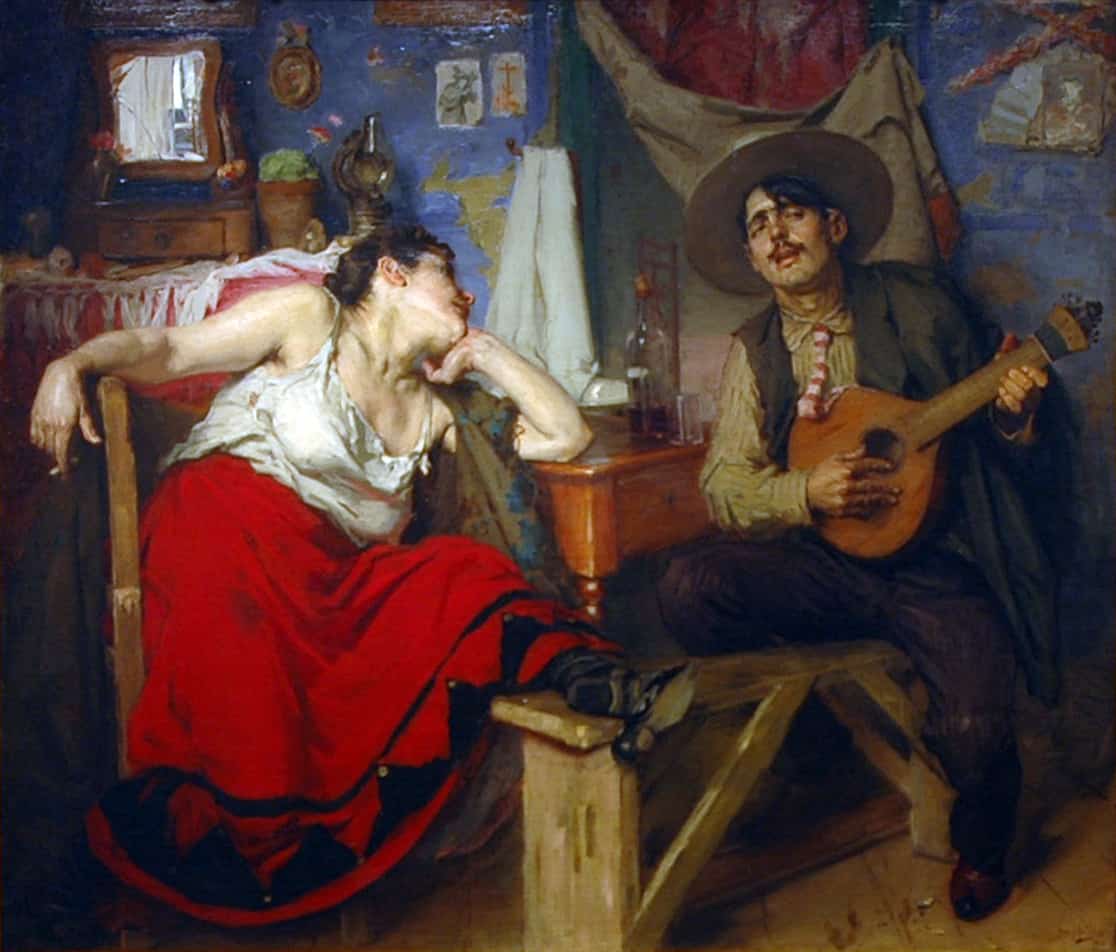
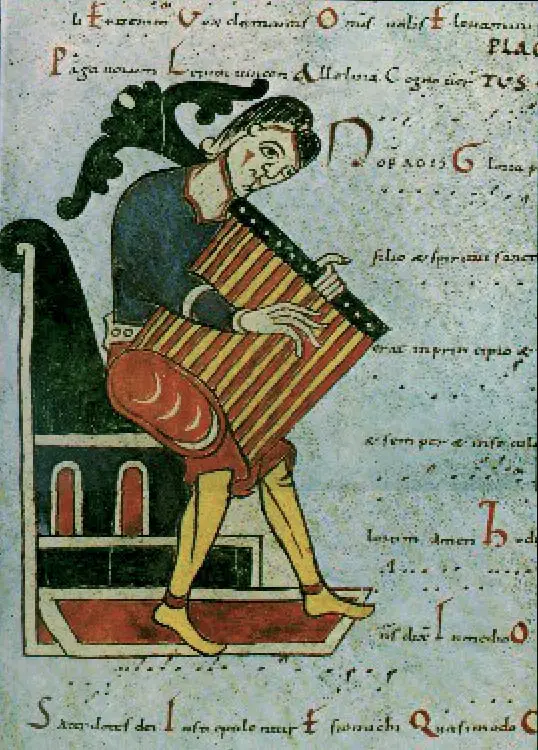
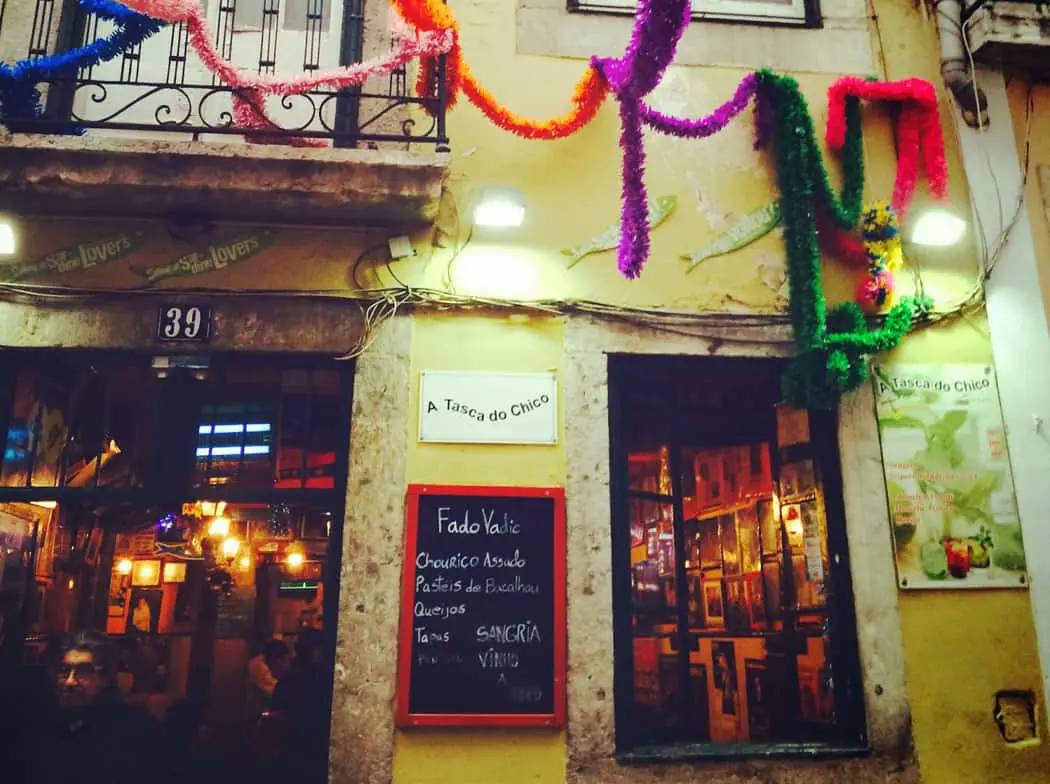
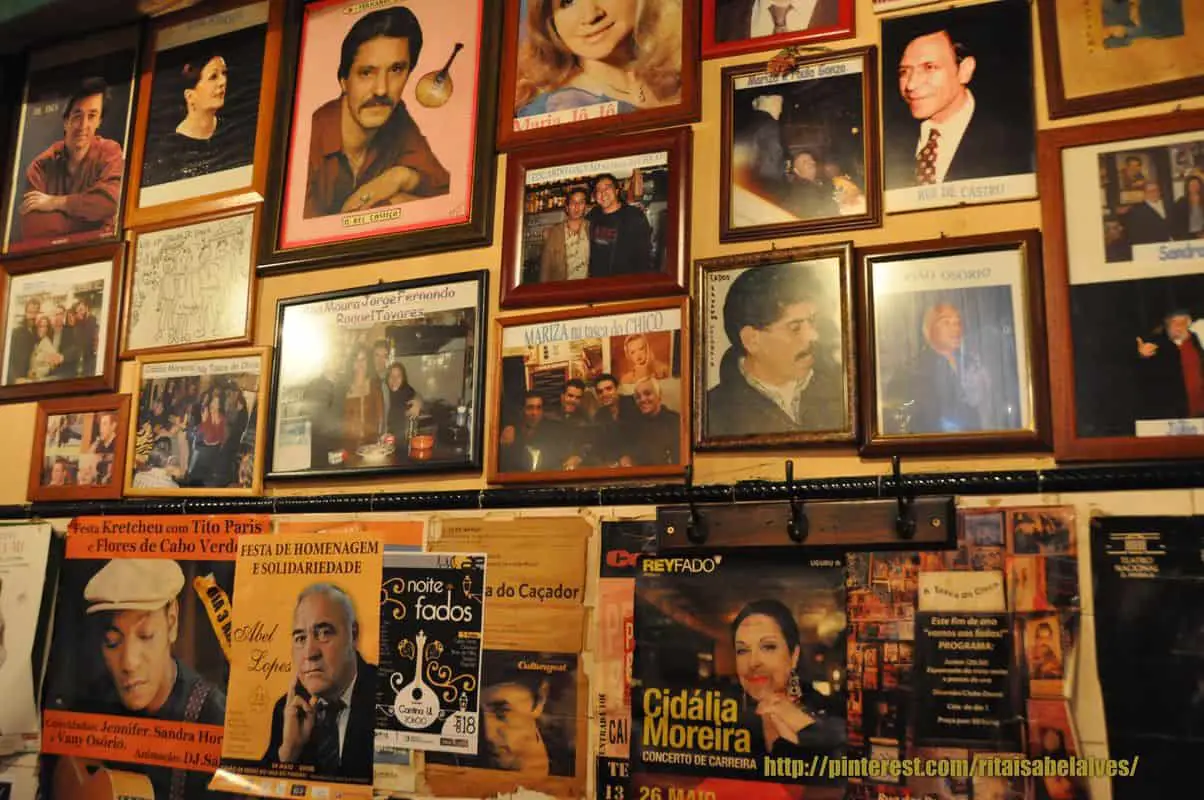
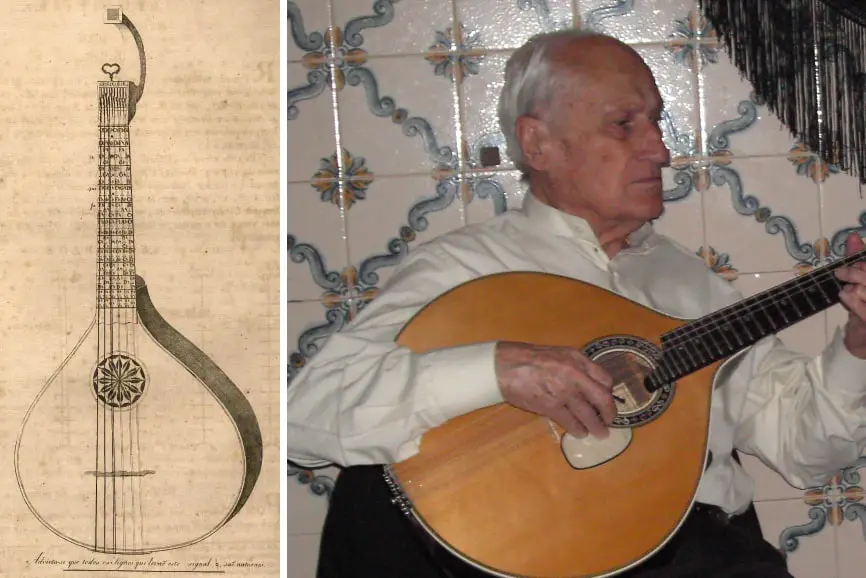
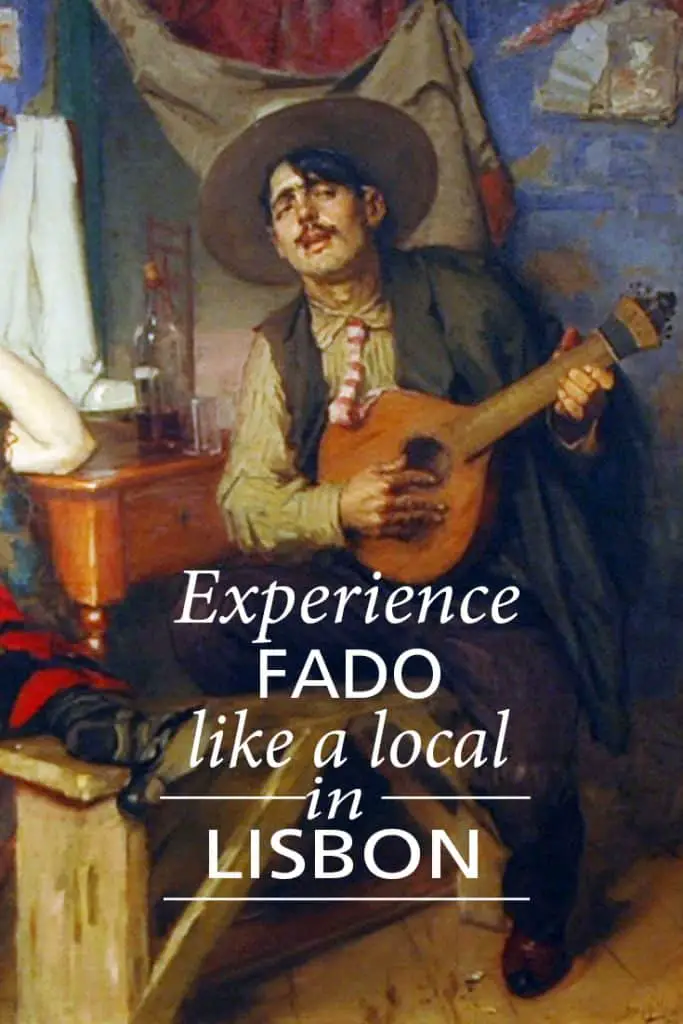

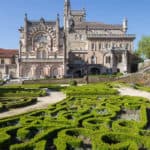



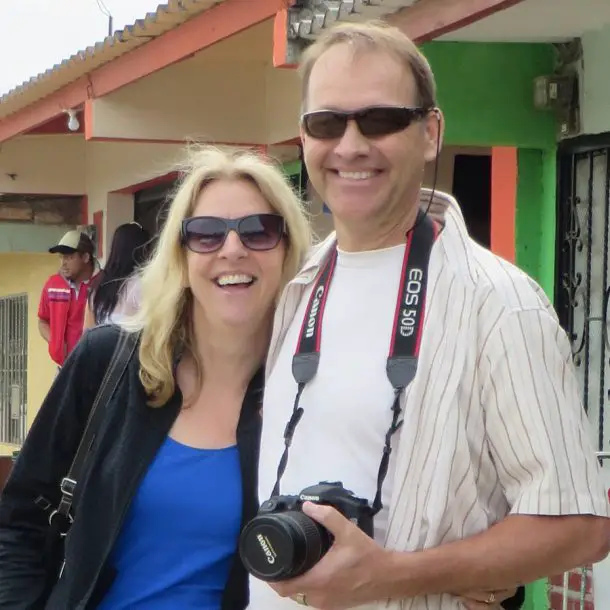




I enjoyed Fado music when I visited Portugal a few years ago on a river cruise. It is really lovely and the history is so interesting.
True, and now that I’ve heard Fado once, I’d like to learn even more about it!
I hadn’t heard of fado before. Lucky you, to find a performance not aimed at tourists!
I hadn’t heard of Fado either, until I started doing research on Portugal. And although I didn’t make it a mission to see it, I’m so glad that it worked out for us to hear it, and in such an authentic way.
There is also a Fado Museum in the Alfama neighborhood that gives great insight into the history and evolution of fado music. It has listening stations where you can listen to some of the famous singers and compare the styles.
What a find! I love it that your tour guide was able to give you that insider info of where to find the authentic thing –
Special and magical and a touching insight into a different culture 🙂
It’s very true – these are the kind of experiences that stick with me whenever I think of a certain country or place. So glad we got to see Fado this way.
I love the heartfelt passion of Fado and your recommendation of Tasca do Chico is much appreciated. A friend of ours took us to his favorite Fado venue in Lagos this summer, a little out-of-the-way place frequented by locals, and turned us into big time fans. The guitar music is mesmerizing by itself but the singers are really amazing. Unfortunately, the performance didn’t even get going by 10:30 PM so for early birds like us, we were drooping after midnight. However, we plan to attend more performances as the music is really unique.
I guess the Portuguese are night owls outside of the bigger cities, too! We typically aren’t late-nighters ourselves, but we were prepared this time and once the music started, we were all in.
Thanks for the tip on Tasca do Chico …it definitely sounds like an authentic spot for Fado. I’ve pinned it so I can make sure to visit next time I’m in Lisbon. Last time I was there I purchased a CD of music by a local performer and have pretty much worn it out
Thanks Michele – you won’t be disappointed with Tasca do Chico I’m sure. I only wish we could understand more of the language, but even without knowing Portuguese, it was amazing.
Gosh – I love reading about music with so much history and passion involved.
Thanks for sharing this…when I am next in Portugal I shall be sure to listen out for Fado.
Thanks Rebecca…Fado is definitely something unique to Portugal, so I would recommend it if you go.